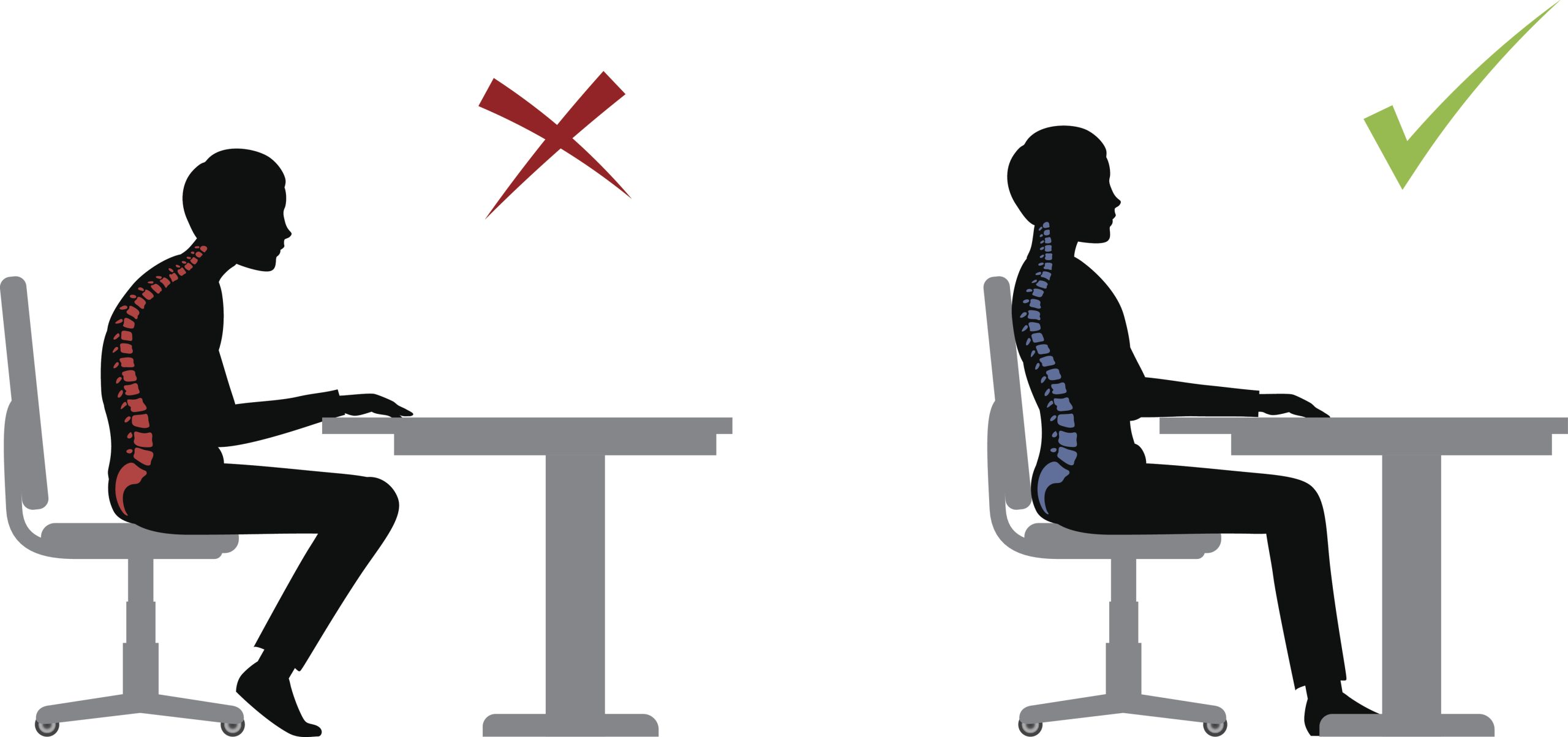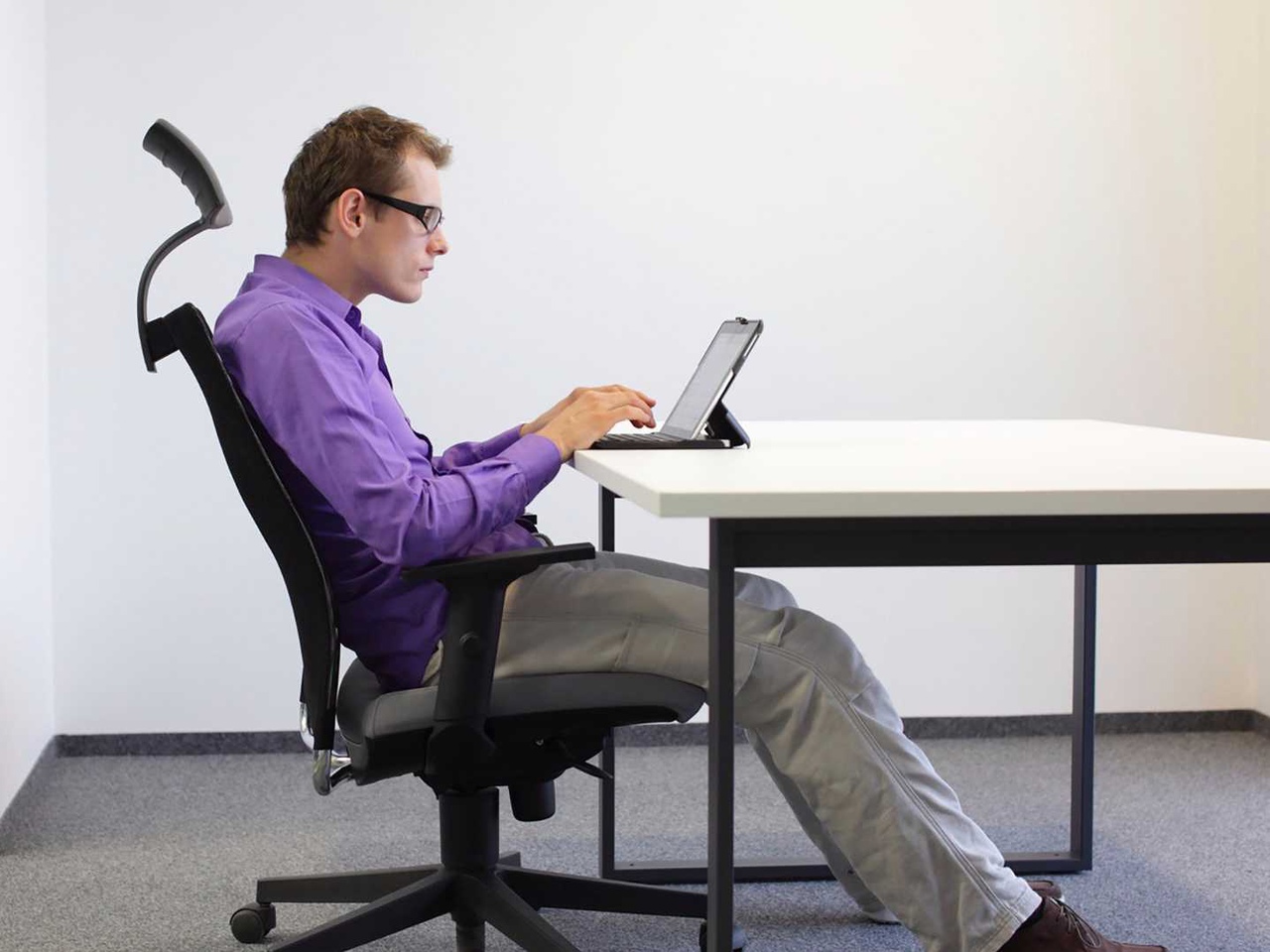The Importance of Addressing Posture and Preventing Kyphosis
Kyphosis, commonly known as a hunched or slouched posture, is a prevalent issue faced by numerous individuals in today’s fast-paced and technology-driven world. This condition refers to an excessive curvature of the spine, leading to poor posture and potential health complications. Addressing the root causes of kyphosis and understanding how to prevent its development is crucial for maintaining overall well-being and ensuring a healthy lifestyle.
In this article, we will delve into the various aspects of kyphosis, its causes, and its impact on an individual’s health. Furthermore, we will discuss the importance of making informed choices, such as selecting the right chair, to mitigate the development of poor posture.
Causes of Kyphosis: Identifying Key Factors Contributing to Poor Posture
Understanding the root causes of kyphosis is essential for taking appropriate preventative measures and maintaining good spine health. Various factors contribute to the development of poor posture, and by addressing these issues, individuals can minimize their risk of developing kyphosis. Below are some key factors that play a role in the onset of this condition:
- Genetic Factors: Certain individuals may have a genetic predisposition to developing kyphosis due to hereditary conditions affecting the spine or connective tissues. These genetic factors can influence the overall structure and alignment of the spine, making it more susceptible to curvature abnormalities.
- Poor Posture Habits: Engaging in poor posture habits, such as slouching or hunching over while sitting or standing, can lead to the development of kyphosis over time. These habits put additional strain on the spine and supporting muscles, causing misalignments and weakening the overall spinal structure.
- Muscle Weakness and Imbalances: Weak or imbalanced muscles in the back, neck, and core can contribute to poor posture and the development of kyphosis. Strong muscles are essential for supporting the spine and maintaining proper alignment, and weakened muscles can result in the spine curving abnormally.
- Sedentary Lifestyle: A sedentary lifestyle with extended periods of sitting or standing can contribute to the development of kyphosis. Prolonged sitting or standing without proper breaks or movement can lead to muscle fatigue and strain, causing the spine to curve and adapt to these unhealthy postures.
- Inadequate Footwear: Wearing unsupportive or ill-fitting footwear can affect posture and spinal alignment. Shoes that do not provide adequate support can lead to imbalances in the feet, knees, and hips, ultimately impacting the spine and contributing to the development of kyphosis.
By addressing these causes and implementing healthy habits, individuals can reduce their risk of developing kyphosis and maintain proper spinal alignment.
Impact of Kyphosis on Health: Exploring the Consequences of Poor Posture
The development of kyphosis and poor posture can have significant consequences on an individual’s overall health and well-being. By understanding the various health implications associated with kyphosis, individuals can better appreciate the importance of maintaining proper spinal alignment and posture. The following are some of the key health impacts related to kyphosis:
- Spinal Issues: Kyphosis can lead to a range of spinal problems, such as nerve compression, disc degeneration, and increased susceptibility to injury. These issues can result in chronic pain, mobility limitations, and reduced quality of life.
- Back Pain: Poor posture and spinal misalignment can cause muscle strain and tension in the back, leading to persistent back pain. Over time, this pain can become debilitating and affect daily activities, work, and overall well-being.
- Headaches and Migraines: The strain on the neck and upper back muscles resulting from kyphosis can trigger tension headaches and migraines. These headaches can be both frequent and severe, significantly impacting an individual’s daily life.
- Circulation Problems: Kyphosis can negatively affect blood circulation, particularly in the upper body. The compressed blood vessels and reduced blood flow may lead to symptoms such as numbness, tingling, and cold extremities.
- Respiratory Issues: Severe kyphosis can compress the chest cavity, affecting lung function and making it difficult to breathe. This can result in shortness of breath and reduced oxygen intake, which may contribute to fatigue and other health complications.
- Psychological and Emotional Effects: The physical discomfort and appearance of kyphosis can impact an individual’s self-esteem and mental health. People with poor posture may experience feelings of insecurity, depression, and social anxiety.
Choosing the Right Chair to Prevent Kyphosis: Why It Matters
Selecting the appropriate chair is crucial in preventing the development of kyphosis, as it can significantly influence posture and spinal alignment. Utilizing the Features-Advantages-Benefits (FAB) framework, we will discuss the key characteristics of our product, Breedge chairs, and explain how these advantages can be beneficial for our ideal target audience.
Features:
- Ergonomic design
- Adjustable seat height and armrests
- Lumbar support
- High-quality materials
- Variety of styles and colors
Advantages:
- Proper back support
- Customizable comfort
- Improved posture
- Durability
- Aesthetically pleasing
Benefits:
- Reduced risk of developing kyphosis
- Alleviated back pain and discomfort
- Enhanced productivity and focus
- Long-lasting investment
- Complements any workspace
Breedge chairs are specifically designed with ergonomics in mind, providing proper back support and promoting healthy posture. The adjustable seat height and armrests allow for customizable comfort, catering to each individual’s unique needs. The lumbar support feature further ensures that the spine maintains its natural curvature, reducing the risk of developing kyphosis.
Not only do Breedge chairs offer improved posture, but they also alleviate back pain and discomfort associated with prolonged sitting. This enhanced comfort leads to increased productivity and focus, enabling users to perform at their best in both professional and personal environments.
Breedge chairs are constructed with high-quality materials, ensuring durability and a long-lasting investment. The variety of styles and colors available allows customers to choose a chair that complements their workspace and personal preferences.


